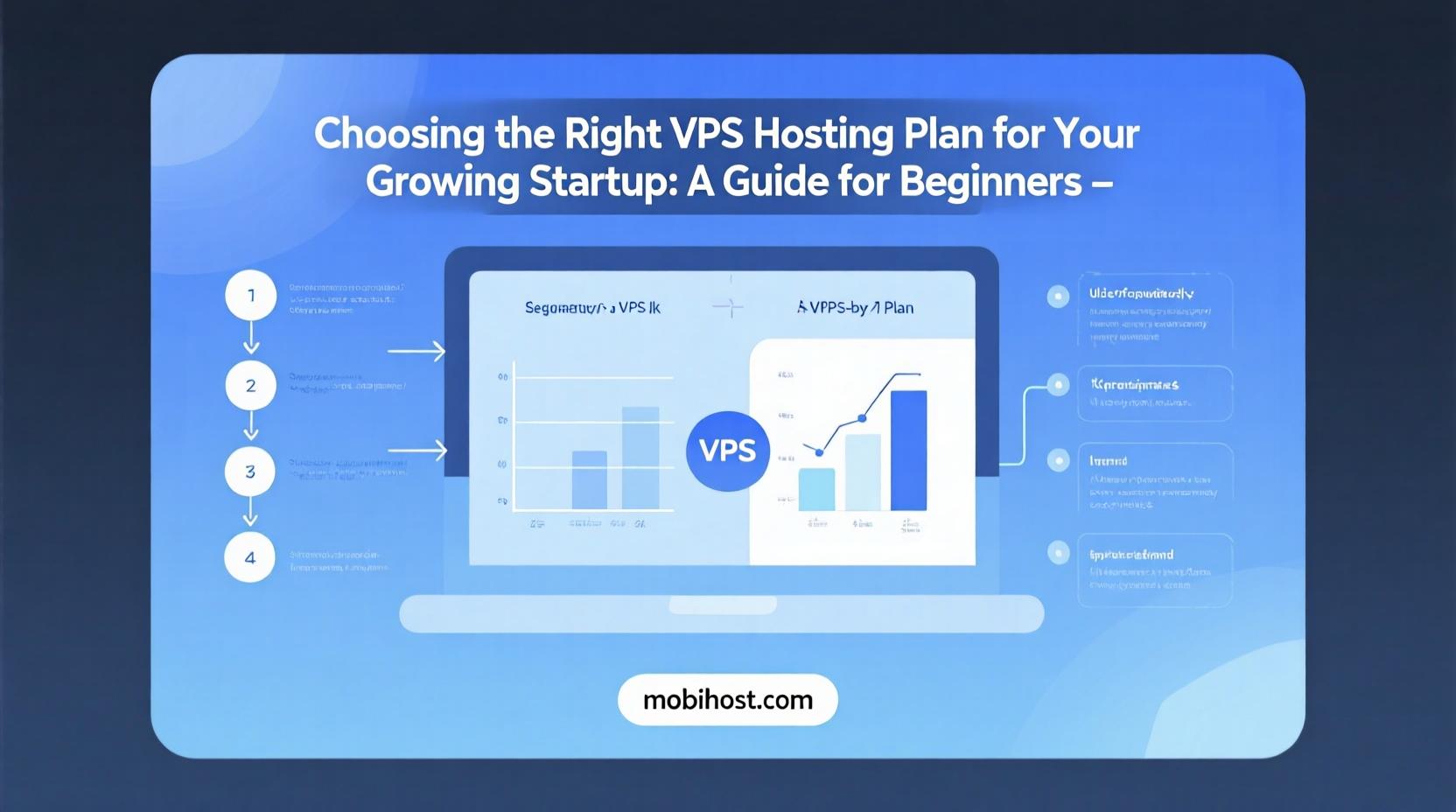Choosing the Right VPS Hosting Plan for Your Growing Startup: A Guide for Beginners
Launching a startup is exciting, but the technical aspects can feel overwhelming. One crucial decision is choosing the right Virtual Private Server (VPS) hosting plan. A well-chosen VPS provides the scalability, security, and performance your burgeoning business needs to thrive. This guide will walk you through the process, ensuring you make informed decisions and avoid costly mistakes.
Understanding Your Needs: Before You Choose
Before diving into specific plans, assess your startup’s current and projected needs. Consider these factors:
- Website Traffic: How many visitors do you expect now, and in the next 6-12 months? Higher traffic demands more resources.
- Resource Consumption: What kind of website are you building? Resource-intensive applications like e-commerce platforms or video streaming require more powerful servers.
- Scalability: Can your chosen plan easily handle increased traffic and resource demands as your business grows? Upgrading should be seamless.
- Budget: VPS plans range in price. Find a balance between affordability and the resources you need.
- Technical Expertise: How comfortable are you managing server configurations and software updates? Some providers offer managed services for less technical users.
Key Features to Look For in a VPS Hosting Plan
Once you understand your needs, focus on these essential features:
Performance and Speed:
- Processor (CPU): A powerful CPU ensures quick processing of requests and smooth website performance.
- RAM (Memory): Ample RAM allows your website to handle many simultaneous visitors without slowing down.
- Storage (SSD vs. HDD): Solid State Drives (SSDs) provide significantly faster loading times compared to Hard Disk Drives (HDDs).
- Bandwidth: This determines how much data your website can transfer. Choose a plan with sufficient bandwidth to handle your expected traffic.
Security and Reliability:
- Data Backups: Regular backups are crucial to protect your data from loss or corruption. Look for automated backups.
- Security Features: Firewalls, intrusion detection systems, and SSL certificates are essential for protecting your website and customer data.
- Uptime Guarantee: A high uptime guarantee (e.g., 99.9%) indicates a reliable hosting provider.
Choosing the Right Plan Size
VPS plans are typically categorized by resource allocation. Common options include:
- Basic Plans: Ideal for smaller websites with low traffic and resource needs.
- Business Plans: Suitable for medium-sized websites with moderate traffic and resource demands.
- Enterprise Plans: Designed for large websites with high traffic and substantial resource requirements.
Start with a plan that fits your current needs, but choose one with room to scale as your business grows. Upgrading is usually easier than downgrading.
Remember, selecting the right VPS hosting plan is a crucial step in your startup journey. Take the time to carefully assess your needs, compare options, and choose a provider that offers the performance, security, and scalability to support your growth. Good luck!

